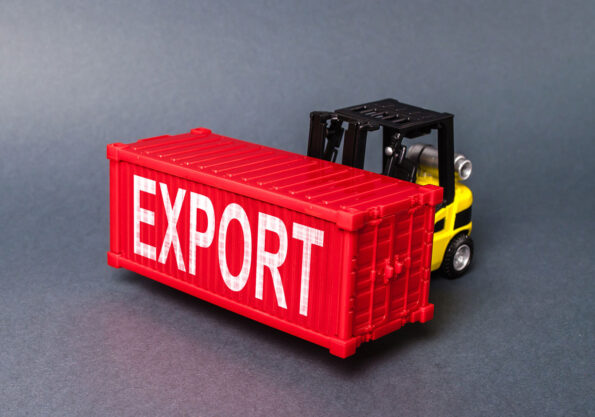Foreign trade (international trade) refers to the exchange of goods and services between a country and another country outside its borders. In today’s global economy, it plays a major role in the economic development and welfare of countries. Foreign trade (international trade) includes not only the economic relations of two countries, but also international consultancy and consultancy, export and import processes, marketing strategies, It covers competitive conditions and many other factors.
🔹 Export and Import: Export is when a country sells goods or services to another country. Import is when a country buys goods or services from another country. These are the two main actors in foreign trade.
🔹 Customer and Competitor Analysis: Analyzing Customer needs correctly is one of the factors that bring success in exports. At the same time, it is of great importance to take the right position by analyzing the strategies, market penetration and pricing policies of rival companies.

🔹 Customs and Tariff: Each country sets certain rules and regulations in foreign trade. Customs is the unit that controls the entry and exit of goods at the borders of countries. Tariff is the tax levied on imported or exported goods. These two concepts directly affect costs and pricing in foreign trade.
🔹 Dumping and Competition: Dumping is the export of a product at a price below its cost. This creates unfair competition in international markets. Countries can take various measures to protect against such practices.
🔹 Foreign Trade (international trade) Policy: This policy determines a country’s strategic approach in international trade, its advantages and disadvantages, goals and practices. Which products will sell best, which is the best place and which is the best country, how a country has the largest population. With this policy, we can determine the locations with the most educated human resources.
🔹 Payment and Financing: Payment methods are very important in foreign trade. Letter of credit, foreign exchange, for goods, documentary, temporary acceptance, Various methods are used, such as consignment. In addition, incentives used in foreign trade are provided by states to increase exports or support certain sectors.
Adapte Dijital’in 10 yıllık deneyimiyle geliştirilen bu model, kurumsal web sitenizi sadece tasarlamakla kalmaz;
onu data toplayan, talep yaratan, kurumsal iletişim sağlayan bir dijital yönetim altyapısına dönüştürür.
Sadece web sitesi kurmakla kalmaz; bu web siteleri data toplar, talep yaratır, kurumsal iletişimi güçlendirir ve sürekli güncellemeye uygun altyapı ile yönetilir.
As a result, foreign trade is shaped by the combination of economic relations between countries, strategic approaches, customer and competitor analyses, customs and tariff regulations and many other factors. This complex structure plays a major role in the economic development of countries. When approached with appropriate strategies, it is possible to be successful in the international market and increase economic prosperity.
İçindekiler
ToggleScope of Foreign Trade (International Trade) Policy
The Scope of Foreign Trade (International Trade) Policy is quite broad and includes a number of factors and processes. Here are the main items covered by the policy:
🌍 1. Export and Import Policies:
Countries develop various policies that regulate export and import processes. These policies determine how international trade will be conducted, which products will be allowed to be traded, and the tariffs and customs duties that will be applied to them.
🌐 2. International Agreements and Treaties:
A country’s international trade policy includes multilateral, bilateral and regional trade agreements and treaties. These agreements are made to facilitate trade, reduce trade barriers and ensure fair competition conditions.
🛃 3. Customs and Tariff Policies:
Adapte Dijital’in 10 yıllık deneyimiyle geliştirilen bu model, kurumsal web sitenizi kurumunuzu/markanızı anlatan, tanıtan, güven yaratan, talep oluşturan bir dijital yönetim platformuna dönüştürür.
Adapte Dijital, bu modelde bir konumlandırma ajansı olarak çalışır. Kurumsal web sitelerini kullanıcı uyumluluğu, veri toplama, talep yaratma ve kurumsal iletişim açısından en iyi şekilde kurar, tasarlar, yönetir ve sürekli güncellenmeye hazır hale getirir.
Customs and tariff policies regulate the movement of products across international borders. Customs controls ensure inspection of imports Tariffs protect local industries by regulating trade.
💹 4. Exchange Rate Policies:
Exchange rates can directly affect international trade and investment flows. Exchange rate policies include strategies to ensure the stability of the value of national currencies against other currencies.
🏭 5. Industrial and Production Policies:
Countries can focus on sectors that will provide competitive advantage. Industrial and production policies cover the incentives, supports and regulations given to these sectors.
🧑🎓 6. Education and Labor Policies:
An educated workforce can increase a country’s international competitiveness. Education and workforce policies are aimed at improving the quality of the workforce.
💰 7. Price and Income Policies:
Product and service prices and income levels affect demand and therefore international trade. These policies regulate macroeconomic variables such as inflation, interest rates and taxation.
🌿 8. Environment and Sustainability Policies:
The environmental impacts of international trade should be taken into account. Sustainable international trade policies aim at environmental sustainability and protection of natural resources.
🚀 9. Technology and Innovation Policies:
Technological developments and innovation can determine the competitive advantage of countries in international trade. These policies support R&D investments, technological developments and innovation.
🤝 10. Cooperation and Diplomacy:
International cooperation and diplomacy play a key role in expanding the foreign trade network of countries. Good relations are important for making trade agreements.
All these policies and strategies affect a country’s success in foreign trade and contribute to the sustainable and inclusive development of international trade.
Goals of Foreign Trade (International Trade) Policy
The objectives of Foreign Trade (International Trade) Policy are shaped in line with a country’s general economic objectives, strategic priorities and national interests. Here are the main goals of foreign trade policy:
🎯 1. Balance of Trade:
One of the main goals of foreign trade policy is to establish a balance between exports and imports. Enabling exports to meet imports helps maintain the country’s foreign trade balance.
🌿 2. Sustainable Development:
International trade contributes to the sustainability of economic development. Conservation of natural resources and environmental sustainability are important in achieving this goal.
📈 3. Economic Growth:
Foreign trade can help increase a country’s gross domestic product (GDP). Access to international markets can increase the economic growth rate of countries.
🌐 4. Access to International Markets:
Countries aim to access new markets and increase their competitiveness in the international market through foreign trade policies. This offers a wider market for domestic products and services.
🛠️ 5. Investment and Technology Transfer:
Foreign trade attracts foreign investments and enables technology transfer. Foreign investments and technology transfer can increase local industry and workforce capacity.
🧑🔧 6. Increasing Employment Opportunities:
International trade creates new job opportunities and contributes to employment. An increase in employment can be observed in export-oriented sectors.
💰 7. Increasing Foreign Exchange Revenues:
Export activities increase countries’ foreign exchange income. Increasing foreign exchange reserves can strengthen the value of the national currency and the country’s international financial strength.
🧑🎓 8. Development of Human Resources:
International trade and investments can provide new skills to the workforce and raise education levels. An educated workforce increases the country’s international competitiveness.
🛒 9. Increasing Consumer Welfare:
Foreign trade offers consumers a greater variety of products and services. This increases consumer well-being and improves quality of life.
🔗 10. Regional and Global Collaborations:
International trade policies encourage regional and global cooperation and integration. Cooperations can strengthen political and economic stability.
These goals constitute the general framework that countries consider when creating their foreign trade policies, and they aim to ensure that foreign trade provides profit for all its stakeholders.
Removal of External Payment Imbalances
External payment imbalances refer to situations in a country’s foreign economic relations where imports and other foreign exchange outflows exceed exports and other foreign currency inflows. Eliminating these imbalances is very important in maintaining macroeconomic stability. Here are the strategies to eliminate external payment imbalances:
🔄 1. Exchange Rate Adjustments:
The value of the exchange rate affects the competitiveness of exports and imports. Exchange rate adjustments through devaluation or revaluation can correct external payment imbalances.
🌐 2. Trade Policy Implementations:
Countries may implement various trade policies that encourage exports and restrict imports. These policies may include tariffs, quotas and subsidies.
💰 3. Increasing Foreign Exchange Reserves:
Central banks can manage external payment imbalances by increasing foreign exchange reserves. This can help with short-term external debt payments and financial stability.
💵 4. Monetary Policy and Interest Rates:
Central banks can influence capital flows by adjusting interest rates. High interest rates can attract foreign capital, which can increase foreign exchange inflows.
🛒 5. Promoting Domestic Savings:
Increasing domestic savings can reduce the need for external debt. This finances domestic investment and can correct external payment imbalances.
📉 6. Keeping Inflation under Control:
Inflation control can help maintain a country’s external competitiveness. Low inflation can support exchange rate stability and prevent capital flight.
🤝 7. International Cooperations and Agreements:
Regional and multilateral trade agreements can contribute to the regulation of foreign trade and the elimination of external payment imbalances.
🌿 8. Sustainable Development and Investment:
Investing in sustainable development projects can reduce external payment imbalances in the long term. Energy, water and food security are priority sectors in this field. .
📈 9. Structural Reforms:
Structural reforms can increase economic efficiency and help address external payment imbalances. These reforms can be carried out in areas such as education, health, taxes and the labor market.
🔍 10. Macroeconomic Surveillance and Policy Coordination:
Regular economic analysis and macroeconomic surveillance can help detect potential imbalances early and take appropriate policy measures in a timely manner.
These strategies can be used to eliminate external payment imbalances and maintain macroeconomic stability in the short, medium and long term.
Protection from Foreign Competition
Protection from foreign competition aims to protect the domestic industries of countries from possible harm from foreign products and services. In this context, countries implement various trade policies to protect their domestic markets from excessive foreign competition and unfair trade practices. Measures implemented to protect from foreign competition include customs duties, quotas and commercial measures. These measures can contribute to the national economy and employment by creating a fair competitive environment for domestic producers.
However, when safeguards against foreign competition are not properly designed and implemented, they can damage global trade relations and lead to mutual trade wars. Moreover, such protectionist policies may weaken the competitiveness of domestic industries in the long run, as these policies may reduce the external competitive pressure needed for domestic firms to increase their productivity and innovate. Therefore, it is important that strategies to protect against foreign competition are carefully evaluated and implemented in a balanced manner.
Economic Development
Economic development refers to a country’s efforts to raise its standard of living, increase its economic well-being, and create sustainable growth. In the process of economic development, countries try to increase their productivity and competitiveness by making investments in areas such as technological innovation, education, healthcare, infrastructure and institutional framework. This process also includes elements such as income distribution, equality of opportunity and social justice, because sustainable economic development requires that all segments of society can benefit from this development fairly. Economic development does not only mean the expansion and growth of national economies; It also means improving the socioeconomic structure of society and increasing the quality of life of individuals.
Eliminating Market Disruptions
Market disruptions are factors that cause the market mechanism to not function effectively. These disruptions may occur due to various reasons such as externalities, asymmetric information, monopoly power and public goods. It is of critical importance in eliminating market disruptions, increasing economic efficiency and optimal use of resources.
Providing Income to the Treasury
Providing income to the Treasury refers to a series of activities carried out by the state to finance public services, realize public investments, make debt payments and maintain macroeconomic stability. These activities include collecting taxes, issuing government bonds, privatizing government-owned assets, and charging user fees. An effective revenue collection mechanism ensures the financial sustainability of the state, supports economic development and guarantees the continuity of social services. The state distributes these revenues to basic public services such as education, health, infrastructure and social security. It increases the general welfare of society by making investments.

Serving Foreign Policy Purposes
Serving foreign policy objectives includes a country’s efforts to protect and promote its national interests, values, and security in the international arena. These purposes may include conflict resolution, international cooperation, global peace and security, development assistance and trade relations. Foreign policy tries to maximize countries’ national interests and national security by regulating their relations with other states, in line with the principles of compliance with international norms and rules, mutual respect and cooperation. Foreign policy strategies and practices play a critical role in maintaining the international balance of power and advancing global interests.
Tools of Foreign Trade (International Trade) Policy
Let’s start by providing an in-depth look at the subject of “Tools of Foreign Trade (International Trade) Policy” as a foreign trade expert. Foreign trade policy is the way countries regulate their international trade. The main purpose of foreign trade policies is to protect and promote national interests on issues such as economy, competition and export.
🌐 1. Customs Tariffs:Customs tariffs are one of the most basic tools of foreign trade. Taxes applied to imported goods provide a competitive advantage by increasing the prices of foreign products. This situation protects domestic products in the domestic market.
🔄 2. Quotas:Import quotas limit the amount of a particular product entering the country. This provides domestic producers with the advantage of protecting their market shares.
🤝 3. Consultancy and Consultancy Services: Foreign trade consultancy and consultancy services provide strategic assistance to companies on how to compete in international markets. These services guide companies in acquiring customers and entering new markets.
📈 4. Incentives:Incentives are advantages provided by the government to increase the exports of domestic companies. It supports foreign trade companies through economy and export
🔍 5. Dumping and Anti-Dumping Measures: Dumping is the sale of products below their cost. Anti-dumping measures are implemented to protect the domestic industry. This balances competition and market conditions.
📚 6. Education and Educated Workforce: The most educated workforce enables foreign trade companies to be more effective in international markets. Consultancy services guide companies in this field.
🌍 7. International Agreements:International trade agreements are made to facilitate trade between various countries. These agreements bring to the agenda the concepts of best country and best place.
🔄 8. Foreign Trade Processes:Effective foreign trade processes make export and import transactions more efficient. These processes are critical for foreign trade firms and companies.
As a result, foreign trade policy instruments are the basic components of a country’s international trade strategy. These tools manage international competition and market access while protecting domestic industries. When used effectively, these policy instruments can protect national economic interests and optimize international trade opportunities.
Customs Tariffs
Customs tariffs are taxes imposed by countries on imports and are one of the main tools of foreign trade policy. . By increasing the price of foreign products, these tariffs provide a competitive advantage to domestic producers and protect the domestic industry. While customs tariffs help countries bring their economies to a more competitive position within the world economy, they also provide an important source of income for the state. This allows the state to finance development projects and improve the general welfare of society.
Non-Tariff Tools
Non-tariff instruments are policy instruments applied other than customs tariffs to restrict or control trade. These tools include a variety of measures such as quotas, import and export bans, licensing requirements, technical standards and subsidies. Non-tariff instruments are often used to protect a particular sector or industry, to promote domestic production, or to support specific policy objectives, such as national security. These tools have an important role in shaping the trade strategies of countries by affecting international trade.
Export Encouragement
Export promotion is a critical component of a country’s foreign trade strategy. States provide various incentives and supports for domestic producers to be more competitive in foreign markets. These incentives may include tax breaks, subsidies, low-interest loans and training programs. Encouraging exports contributes to the growth of the national economy, increased foreign exchange inflow and expansion of employment. In addition, it allows countries to achieve a more effective and sustainable position in global markets by increasing their technological capacity and innovation capabilities.
Affiliate Commerce
Connected traderefers to trade carried out between two or more countries, subject to certain conditions or agreements. This type of trading is generally based on predetermined rules, standards and conditions regarding the purchase, sale or exchange of specific products or services between parties. Connected trade can be regulated through agreements or bilateral/negotiated contracts between countries, which can help make trade more predictable and secure. However, affiliated trading can sometimes put pressure on local producers and limit competition because complying with certain conditions can be challenging for local firms.
Historical Background of Foreign Trade Policies
The historical background of foreign trade policies is of great importance in understanding the economic structures of countries, competitive conditions and international relations. These policies have been implemented in many shapes and forms throughout history.
History of Foreign Trade: 🌍 Trade in Ancient Times: The first foreign trade activities took place between civilizations such as Ancient Egypt, Mesopotamia and India. During this period, trade was generally based on the barter system.
🌐 Middle Ages and Maritime Trade: In the Middle Ages, international trade gained great momentum with the discovery and use of sea routes. At the same time, tariff and customs systems also developed during this period.
💱 19. Century and Free Trade: In the 19th century, with the industrial revolution, production capacities increased and the concept of free trade became widespread. During this period, many countries followed liberal policies regarding imports and exports.
🌐 20. Century and the World Trade Organization:The 20th century witnessed the institutionalization of international trade. The establishment of the World Trade Organization (WTO) in 1995 regulated competition conditions in international trade and set rules against practices such as dumping.
Evolution of Foreign Trade Policies: Foreign trade policies have undergone a series of changes over the centuries. The focus of these policies has generally been on economy, competition, tariff, and customs. Foreign trade experts and consultancy firms follow the evolution of these policies closely and It conducts customer and competitor analysis, conducts market research and provides information to foreign trade companies.
Countries are constantly researching and consulting to determine the best foreign trade strategies. Countries with the most educated populations can often develop the most advantageous trade policies. Foreign trade policies are changed and developed to determine best country practice, to understand what is bought and sold most, and to gain advantage in international markets.
As a result, foreign trade policies have been in constant change and evolution throughout history. While these policies shaped the structure, functioning and competitive conditions of international trade, they also deeply affected international relations and economic developments.
National Security in Foreign Trade
National security in foreign trade aims to protect a country’s economic interests, territorial integrity and national borders. National security issues can directly affect foreign trade policies, especially in the context of flows of strategically important products, technologies and raw materials.
For example, a country may restrict or impose additional tariffs on certain products and services from certain countries due to security concerns. Such trade restrictions can hinder the smooth functioning of international trade and damage relationships of interdependence, while also causing tensions in international politics and diplomacy. Therefore, maintaining the balance between foreign trade and national security is of great importance at both national and global levels.
Young Industry Thesis
Young Industry Thesis suggests that young and developing industries should initially be protected by the state in order to cope with international competition. According to this thesis, since new and developing industries are not yet mature, they are at a disadvantage against more developed and competitive foreign companies. Therefore, such industries should be provided temporary protection, supported by tariff and non-tariff barriers. This support allows the industry to develop, gain competitive advantages and compete effectively in international markets. However, it is essential that this protection is not permanent and is gradually reduced when a certain maturity is reached, otherwise these industries may not gain competitiveness and remain inefficient.
Strategic Trade Policy
Strategic Trade Policyis the proactive policies adopted by a country to gain competitive advantage in international trade. This policy aims to support national industries and enable companies in certain sectors to be more competitive in global markets. Within the framework of strategic trade policy, governments can provide various incentives, subsidies and protections to selected industries. This can increase the capacity of domestic firms to compete against international rivals. However, the implementation of strategic trade policies may lead to mutual trade wars and increased tensions in international trade, so these policies should be carefully evaluated and implemented.
Protection Against Dumping
Protection against dumping is the process by which countries protect their domestic industries against products coming from other countries and being sold below market value. Dumping means selling a product at a price below the market price in the country to which it is exported, and this brings about unfair competition. Anti-dumping measures include anti-dumping duties and various import restrictions. These measures protect domestic producers, contributing to balancing the national economy and creating fair competition conditions. However, such safeguard measures may strain international trade relations and lead to situations that need to be resolved through comprehensive trade agreements and diplomacy.
Foreign Trade and Customs Tariffs
Foreign trade, It is an international field of activity that includes the exchange of goods and services between countries, and there are many consultancy firms specializing in this field. These companies provide consultancy services to customers in export and import transactions on issues such as customs tariffs and procedures, dumping and competition conditions.
Customs Tariffs are taxes imposed on imports. This tax on imported goods is usually calculated on the value of the goods and is generally used to protect the national economy, promote domestic production and raise government revenue. It is applied to increase the Tariffs can affect competition in international markets and shape the structure of trade.
🌐 Foreign Trade and Customs Tariffs:
- 🛃 Customs Tariff: It is the tax applied on imported goods.
- 🌍 International Market: Customs tariffs may affect international market conditions.
- 💰 Economy: High tariffs may protect domestic producers but increase costs to consumers.
- 🔄 Import and Export: Customs tariffs affect a country’s import and export balance.
Consulting companies help rival companies and customers in foreign trade gain competitive advantage in the international market by providing solutions that meet their needs. Because competition plays an important role in the economic world, it is important to protect against unfair trade practices such as dumping.
Companies that provide consultancy on these issues help their customers manage their foreign trade processes by providing information on issues such as rules to be followed in international trade, customs tariffs, import and export procedures. Foreign trade consultants provide strategic support for companies to exist sustainably in the international arena where competition is intense.
After all, customs tariffs and foreign trade policies are an indispensable part of international trade. In this context, the knowledge of international consultancy firms on the dynamics of foreign trade, competitive conditions and customs legislation provides great advantages to companies.
National Market View
National Market Viewexpresses the approach of protecting a country’s economic interests. According to this view, national markets should be isolated as much as possible from foreign competition in order to protect domestic producers. This isolation can be achieved through tariffs, quotas, and various trade restrictions.
The main goal of the National Market View is to increase employment and production in the domestic market, reduce foreign dependency and thus strengthen the national economy. However, such protectionist policy implementation may restrict the expansion of trade between countries and negatively affect international trade relations.
Providing Income to the Treasury and Protecting the Domestic Industry
Providing revenue to the Treasury is usually achieved through customs tariffs, taxes and various government fees. These revenues help the government finance a variety of public services. On the other hand, Domestic Industry Protection aims to protect the national economy from foreign competition. This protection allows the development of domestic industry, increases employment and supports economic development.
Various means can be used to protect domestic industry; these include tariffs, quotas and government subsidies. Both Generating Revenue to the Treasury and Protecting Domestic Industry strategies can be critical components of a country’s foreign trade policy, but they can also affect international trade relations and are regulated by organizations such as the world trade organization.
Economic Effects of Customs Duty
The economic effects of customs duties are multifaceted. First, tariffs increase government revenue, which helps the government finance public services. It is possible. At the same time, it protects domestic production against foreign competition, which can support the development of national industry.
However, these taxes can also increase the cost of imports, which can raise consumer prices and reduce consumer welfare overall. Additionally, tariffs can lead to disputes between trading partners and limit mutual trade. As a result, the economic effects of customs duties can affect a country’s economic structure and performance in the short and long term.
Terms of Trade and Optimum Customs Tariff
Terms of trade is the ratio between the prices of goods exported by a country and the prices of goods imported by the same country. Improving terms of trade means that a country must export less to finance its imports. The optimum customs tariff is the customs tariff that maximizes the total welfare for a country.
Optimum tariff may benefit domestic producers but harm consumers and foreign trade partners. Therefore, the optimum tariff should be carefully determined depending on various economic, social and political factors. Both concepts play a critical role in shaping international trade policies and can influence a country’s foreign trade strategy.
Active External Protection
Effective external protection refers to a set of trade policies and measures implemented by a country to protect its domestic industry. These policies and measures may include tariffs, quota systems, and various trade barriers. While these protectionist practices may support domestic producers to compete with foreign competitors, they may also provide domestic consumers with fewer choices and potentially higher prices.
Although the aim of active external protection policies is often to protect and develop domestic industries and stimulate the local economy, such policies can also lead to tensions with trading partners.
Non-Tariff Trade (International Trade) Policy Tools
Foreign trade has an important role in the development processes of countries, and international competition is effective in determining trade policies. In this context, non-tariff trade policy instruments refer to mechanisms that are effective in regulating international trade.
🌐 Quota Systems: Countries can restrict exports or imports above a certain amount of a certain product by applying quota systems in foreign trade. With this method, the domestic market is protected from foreign competition.
🚫 Import Ban: In some cases, the import of certain products may be completely banned for economic, health or safety reasons. This provides an advantage to domestic producers.
🌿 Standardization and Certification: Countries can control product quality by using standardization and certification mechanisms in foreign trade. This increases customer satisfaction and enables us to be more effective in the international market.
💹 Fiscal and Non-Financial Incentives: Countries apply various incentives to encourage exports. Fiscal incentives provide direct economic benefits, such as tax deductions or financial support, while non-fiscal incentives can be consulting services or training programs.
These tools play an important role in international trade and economy management. Domestic producers and consumers can be protected thanks to these non-tariff instruments as well as customs tariffs. At the same time, consultancy and consultancy services are important for foreign trade companies, thanks to these services, companies can gain a competitive advantage in the global market.
In summary, non-tariff trade policy instruments are used to protect domestic industry and consumers, to compete in international markets and to support economic development. These policies help strengthen national economies and shape foreign trade dynamics.
Quantity Restrictions
Quantity restrictions (quotas)are trade policy tools applied to limit the import or export amount of a particular product. Quantitative restrictions are often used to protect domestic industries from foreign competition, manage foreign exchange reserves, or support strategically important industries. Quotas generally provide protection to domestic producers and prohibit or tax imports above a certain amount. However, it may lead to increased product prices for the consumer and limit world trade.
Import Quotas
Import quotasare a type of trade restriction that limits a country from importing more than a certain amount of products within a certain period. These quotas are generally imposed to protect domestic industry and production and to provide more market share to domestic producers. Import quotas can give domestic consumers fewer choices and often raise prices for goods and services because domestic producers can set prices without foreign competition. This provides protection to domestic producers while obliging consumers to purchase goods at higher prices.
Import Bans
Import bansare a form of trade restriction in which certain goods are completely prohibited from entering a country. Such bans are generally imposed for various reasons, such as national security, public health and moral values. For example,the import of food and medicines that do not comply with health standards or certain technological products and equipment that may threaten national security may be prohibited. Import bans can also be used to protect and encourage domestic production, but this is usually strictly regulated and evaluated within the framework of international trade law.
Foreign Exchange Control
Exchange controlis the restrictions and regulations imposed by the official authorities of a country on the foreign currency and foreign exchange transactions of its residents. These controls are generally implemented to keep a country’s exchange rates stable, prevent capital flight, and limit financial instability.
Foreign exchange controlcan take place in various forms, such as restrictions on foreign exchange transactions, disallowing capital movements or imposing restrictions on foreign exchange outflows. Although such controls sometimes provide financial stability in the short term, they can limit investment and lead to economic inefficiency in the long term.
Multiple Exchange Rate System
A multiple exchange rate systemis when a country uses different exchange rates for different types of foreign exchange transactions. This system is often used to support certain economic sectors or certain types of transactions.
Multiple exchange rate systemscan also be used in some cases to encourage or inhibit the import of certain goods and services, to control capital movements and to maintain foreign exchange reserves. However, such a system can often distort trade, affect resource allocation, and lead to economic inefficiency, which is why many countries around the world prefer a single exchange rate system.
New Protectionism
New protectionismis an economic approach in which countries revise their trade policies in order to protect their domestic industries and workforce. While traditional protectionism usually occurs through tariffs and quotas, new protectionism mostly involves non-tariff barriers, that is, indirect methods such as standards, licensing and subsidies.
New protectionism policiesmay help countries avoid potential harm from foreign competition, but they may also lead to tensions and imbalances in the world trading system. These policies may also challenge international trade rules and agreements and lead to mutual retaliation.
Voluntary Export Restrictions
Voluntary Export Restrictions (VRE) refer to an arrangement where a country agrees to limit the export of certain goods, usually under pressure from an importing country. Such restrictions are generally imposed to protect local industries in the importing country, manage trade imbalances, and protect local labor markets.
Voluntary Export Restrictions occur most often in industries such as textiles, automotive and steel, and are usually carried out through some form of quota or price tagging system. These practices can lead to imbalances and inefficiencies inglobaltrade because they can limit the production of goods where they are produced most efficiently.
Health, Safety and Environmental Standards
Health, Safety and Environmental Standards play an important role in international trade. These standards are determined to ensure that imported products comply with a certain level of quality and safety. Countries implement such standards to protect their citizens from dangerous or harmful products, protect the environment, and protect local industries from foreign competition.
However, in some cases, these standards can be used as trade restrictive and discriminatory. For example, a country can exclude foreign products from the market through high health and safety standards. This situation is being regulated by international organizations such as the World Trade Organization to ensure a fair and balanced trade environment.
Administrative Regulations, Public Procurement
Administrative regulations and public tenders are processes that regulate the state’s procurement of certain services and products. Public procurement generally involves governments purchasing goods and services for use in public services. Administrative regulations, on the other hand, determine the norms and rules on how these processes will be carried out.
Fair and transparent public procurement promotes competition, increases market access and ensures equal treatment of suppliers. However, in some cases, these tenders and regulations may be used to protect local firms or to provide advantages to certain firms. Such practices may lead to imbalances in international trade and adversely affect commercial interests.
Export Subsidies
Export subsidies are financial supports provided by governments to make local products more competitive abroad. These subsidies may be provided to domestic producers in the form of direct financial assistance, tax reductions, favorable loans, or other financial advantages. With such support, products can be sold at lower prices abroad, thus increasing exports.
However, export subsidies are strictly regulated under international trade rules because these subsidies can create unfair competition in trade and harm other countries’ domestic industries. International agreements may limit or prohibit such financial assistance under certain conditions.
Import and Export Taxes
Import and export taxes are an important part of international trade. Import duty is a tax imposed on foreign products brought into a country. This tax may be imposed to protect domestic producers from foreign competition, encourage domestic production, and generate government revenue. Export taxis a tax imposed on goods sold outside a country’s borders and is generally used to provide government revenue, prevent over-exploitation of natural resources, or balance exchange rates. Both types of taxes can affect trade flows and lead to imbalances in international trade.
Difference Elimination Taxes on Imports
Difference eliminating taxes on imports are applied to increase the prices of imported products in the domestic market. are the taxes imposed. These taxes are generally imposed to protect domestic producers from foreign competition and to encourage domestic production.
In order for the costs of domestic products to compete with imported products, additional taxes are imposed on imported products, aiming to make domestic products more competitive in market conditions. However, such taxes can alsoincrease consumer prices and limit consumer choices. In international trade law, there are various rules and regulations regarding countervailing taxes on imports.
Export Taxes
Export taxes are taxes imposed on the goods and services exported by a country. Such taxes generally aim to protect a country’s own natural resources, especially if those resources are limited. Export taxes can increase supply in the domestic market and therefore lower domestic prices, which benefits consumers. However, these taxes can also negatively affect countries’ international trade and competitiveness. International organizations such as the World Trade Organization may impose strict limits on export taxes to liberalize trade among member countries.
Monopolies and Cartels
Monopolies refer to the market structure controlled by a single seller within a market, while cartels are organizations formed by independent companies that come together to control prices by restricting competition. In the case of a Monopoly, a single company controls the entire market and offers products to consumers, often at high prices.
In cartels, companies that normally compete with each other cooperate to gain greater control over the market and profit. Both monopolies and cartels can lead to reduced competition and consumers facing higher prices with fewer choices; Therefore, they are regulated under competition law in many countries.
Export Monopolies and Dumping
Export monopolies and dumping are two common phenomena in international trade.
- Export Monopolies: Export monopolies are situations where a country exports a certain product or service through a single company or organization. This situation can be created in order to control the price of a particular product in the global market and make higher profits on this product. Such monopolies are often created and managed by governments.
- Dumping: Dumping is the situation where a product is exported at a price below its production cost. Dumping is generally done to gain a competitive advantage in the domestic market, to quickly gain market share, or to sell overstock products. Dumping can harm domestic producers in targeted import markets, and therefore many countries take various anti-dumping measures, often in the form of anti-dumping duties.
These two facts can often lead to international trade disputes and trade wars. International trade law aims to maintain world trade in a fair and balanced manner by regulating such practices.
Government Policies Against Dumping
Government policies against dumping are implemented to prevent the harmful effects of dumping on the local industry. Dumping can be defined as a country selling its export products to another country below their cost. In this case, the importing country can usually take the following measures:
- Anti-Dumping Duties: Additional taxes are imposed on products sold at dumping prices, increasing the prices of these products in the importing country. Thus, domestic producers are protected from the negative effects of dumping.
- Quota Applications: Import quotas can be imposed to limit the amount of dumped products. This is dumped product It limits how much products can be sold in the importing country.
- Import Bans: It is also an option to completely ban dumped products and ensure that domestic producers are protected from the harms of dumping.
- Support to Domestic Producers: Governments can provide various forms of support to domestic producers in sectors damaged by dumping. This support may take the form of subsidies, low-interest loans or tax deductions.
When such policies are implemented to protect domestic producers, the other party can often appeal to international organizations such as the World Trade Organization (WTO). WTO examines dumping allegations and evaluates whether the measures implemented comply with international trade rules.
Cartels
Cartels are mergers formed by companies operating in the same sector and expected to compete with each other by reaching an agreement on price, production amount, market share and other commercial conditions. The main purpose of cartel formation is to maximize the profits of the companies involved in the cartel by controlling market conditions.
Cartels often harm consumers because product prices can be artificially raised as a result of a cartel agreement, so consumers may be forced to pay higher prices. At the same time, cartels can negatively impact innovation and product quality by limiting competition.
In many countries, cartels are prohibited and evaluated within the framework of competition law. Such practices that limit competition are inspected by competition boards or judicial bodies, and high penalties can be imposed on companies that form cartels. For example, European Union competition law can impose serious fines on companies that form cartels and require these companies to terminate cartel agreements.
Non-Tariff Restrictions Widely Applied to World Trade
Non-tariff restrictions are trade policies in international trade that limit or prohibit the import or export of goods. Such restrictions are often imposed under protectionist policies to protect the national economy from foreign competition. Here are some non-tariff restrictions widely applied to world trade:
- Quantitative Restrictions (Quotas):Quantitative restrictions limit the amount of a particular product that is allowed to be imported. These restrictions can make it difficult for imported products to compete in local markets.
- Import and Export Prohibitions: In some cases, the import or export of various products may be completely prohibited. These prohibitions may generally be imposed for health, safety or environmental protection reasons.
- Health and Safety Standards: Product standards and technical regulations may be imposed for health and safety reasons, which may restrict trade
- Environmental Standards: A country may limit or ban certain products for the purpose of protecting the environment.
- Administrative Regulations and Public Procurement: A country’s administrative regulations and public procurement policies can make it difficult for foreign companies to do business in that country.
- Exchange Control and Multiple Exchange Rate Systems:Exchange control can limit the convertibility of a country’s currency, and multiple exchange rate systems can complicate trade.
- Voluntary Export Restrictions:In some cases, exporting countries may agree to restrict the sale of certain products to importing countries.
These restrictions can make trade difficult and reduce the effectiveness of the world trading system, but most often, such policies are implemented by countries to achieve their own economic, social and political goals.
Liberalization of World Trade
Liberalize world trade While increasing access to international markets, it also creates new opportunities and customer potential for businesses. Foreign trade consultancy plays a critical role in businesses reaching foreign customers and understanding competitive conditions. These consulting services can help companies optimize their export strategies and deal with customs, tariffs and other trade barriers.
- 🌐 Customer Finding: Finding customers in the foreign market, B2B customer finding methods and creating a customer database are frequently used by foreign trade experts. These strategies help businesses gain market intelligence and reach potential customers.
- 💰 Profitability Increase: Liberalization of world trade provides businesses with a regular flow of money, increases profitability and makes them more resilient to macroeconomic crises. Encouraging exports allows companies to reduce unit costs by making full use of their production capacity.
- 🛃 Competition and Customs: International competition encourages companies to innovate and develop technology. However, foreign trade advice is important to protect against trade barriers such as tariffs and dumping. This increases the competitiveness of businesses in all markets.
- 🌿 Environmental and Health Standards: Free trade requires compliance with environmental and health standards between countries. Compliance with these standards ensures that products are accepted in international markets.
- 🤝 Market Diversification: Exports distribute the risks of businesses through market diversification and can balance seasonal sales fluctuations. Being a part of the international business world enables businesses to better understand global competitive conditions.
- 📈 Product Life Span: Liberalization of world trade extends the lifespan of products, allowing for longer-term success in different markets.
- 🌍 International Consultancy: Foreign trade consultancy helps businesses understand international market conditions, competitors and customer demands, so that businesses can be more effective in foreign trade.
Liberalization of world trade encourages businesses to open up to foreign markets, allows them to reach new customers and helps them adapt to the challenges of international competition. Foreign trade experts can play a critical role in effectively managing this process so that businesses can be successful in the international market.
Globalization
Globalization is the process of countries and businesses becoming closer together through foreign trade and international cooperation. As a foreign trade expert, it is necessary to understand the opportunities and challenges brought by globalization. Foreign trade consultancy services can help businesses understand how to compete in this new global economy.
- 🌍 Access to International Markets: Answering the question of how to find customers in foreign trade is important for businesses to reach a large number of customers. B2B customer finding strategies and customer finding techniques in foreign markets are critical in understanding the conditions of new markets.
- 💱 Economic Management: Customs and tariff management, dumping and export and import duties are issues that need to be taken into consideration in order to maintain economic stability in the globalization process. Economy and foreign trade experts can determine the right strategies on these issues.
- 🌐 Technology and Innovation: International competition directs businesses to technology and innovation. A foreign trade consultancy firm can guide businesses to compete by increasing their technology and innovation capacity.
- 💰 Financial Stability: Ensuring a regular flow of money to the company and protecting against devaluation is of vital importance in the process of globalization. To provide employment and to use production capacity fully, Lowering costs is the key to business success in the international arena.
- 🛒 Market Information and Customer Data: Foreign trade customer finding strategies provide significant advantages to businesses in obtaining market information and finding customer data. Learning the situation of the sector and distributing the risk through market diversification are also important in this process.
- 🌿 Sustainability and Environmental Standards: Globalization requires businesses to comply with environmental standards. Foreign trade services can provide consultancy to businesses in ensuring compliance with sustainability and environmental standards.
- 🤝 Foreign Trade Relations: Having knowledge about How to do foreign trade and having access to the right foreign trade consultancy services enables you to be a part of the international business world and compete in all markets. Increases feasibility.
Globalization provides businesses with a competitive advantage in different markets and extends the lifespan of products. Foreign trade consultants and experts provide the necessary information and support for businesses to be successful in the globalization process.
Foreign trade consultancy You can learn how we can serve in our article.
Theory of Economic Mergers
The theory of economic mergers examines various merger strategies of companies, such as mergers and acquisitions. This theory tries to understand why companies resort to mergers and acquisitions in order to increase their market power, efficiency and profitability.
- Increasing Market Power: Companies can merge to reduce competition and increase market power. In this way, they can have the power to determine prices.
- Cost Efficiency: Companies can merge to reduce costs and increase operational efficiency. These mergers can provide cost savings through economies of scale and functional synergies.
- Product and Service Diversity: Mergers allow companies to create diversity by expanding their product and service ranges.
- Risk Diffusion: Firms can merge to spread risks and create portfolio diversity.
- Technology and Innovation: Companies can merge to increase their technological capacity and innovation capabilities.
- Market Access and Expansion: Companies can merge to enter new markets and increase their share in existing markets.
- Tax Advantages: Some mergers may provide tax advantages and financial savings.
For foreign trade, you can review the Ministry of Commercepage.
This theory examines the possible effects of mergers on firms, consumers and society, using microeconomic analysis and game theory. For example, monopolistic mergers may negatively impact consumer welfare, while mergers that increase efficiency may be beneficial to society at large. The theory of economic mergers provides a detailed framework on the causes, types and consequences of mergers.



















































